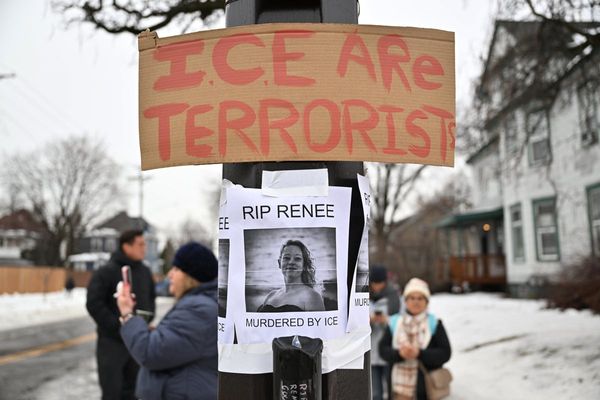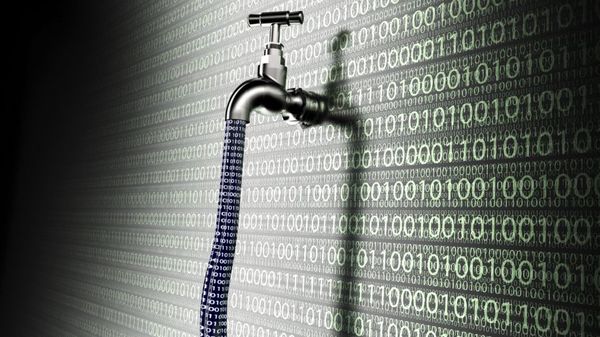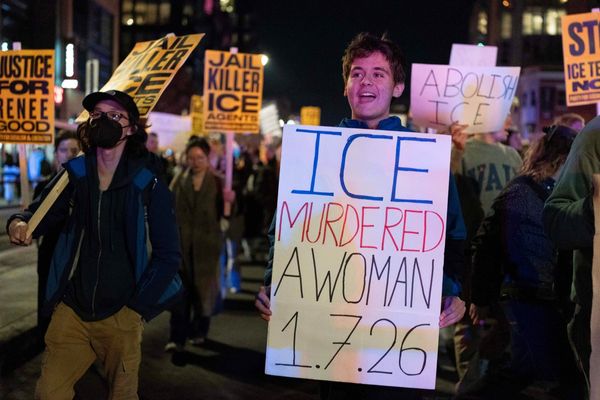
In the 24 hours after the Manchester synagogue attack, emotions ran high on the streets – and there was little confidence in national politicians’ ability to calm the mood.
“Maybe I’m paranoid, but I do worry that unless there’s something done, whether it’s going to be another attack on the Jewish community, whether it’s going to be kind of a response from the far right against the Muslim community, whatever it’s going to be, I worry that more and more we’re getting rising extremism and there isn’t anything being done to deal with it other than thoughts and prayers being given from the government,” Xander, 23, said.
Xander had his barmitzvah at the synagogue that was attacked. Minutes before he spoke, Keir Starmer had visited the synagogue, but Xander was not impressed.
“Most of the people I’ve spoken to have believed that he’s Neville Chamberlain 2.0. He’s trying to appease everyone on every side of the political spectrum and unfortunately all it’s doing is alienating everyone.
“I worry that the result is that we’ll then get, come the next election, a much more extremist party in power.
“We’ve got Muslim neighbours who we’re concerned about who came over to us to check how we were doing. But with the way we’ve got the news cycle set up, with the advent of social media it’s a push for engagement – and the main thing that gets that engagement is anger and fear … and the idea that your neighbours are trying to kill you. I think until we deal with that as a society these things are going to keep happening.”
Hours later, a short distance away at a vigil near the synagogue, a crowd booed and heckled the deputy prime minister, David Lammy, shouting: “Stop the marches!”
Lammy told the crowd that the country stood “in solidarity with the Jewish people, because an attack like this is never felt alone” but he received a hostile reception as he began his address.
In the aftermath of tragedy this vibrant, but unassuming neighbourhood had the eyes of the world on it, with media from across the UK, the US, Australia, Japan and Israel.
The chief rabbi, Sir Ephraim Mirvis, who had earlier said the attack marked a “very dark time” for Jewish people, and the president of the Board of Deputies, Phil Rosenberg, came to comfort their people.
The Israeli president, Isaac Herzog, expressed his sorrow. And on a stage in torrential rain, Rabbi Daniel Walker, whose synagogue was targeted, paid tribute to the “heroes of Heaton Park shul”, Melvin Cravitz and Adrian Daulby, as the crowd cheered and applauded the emergency services and the Community Security Trust.
For years, Cravitz worked at Halperns, a kosher supermarket close to Manchester’s border with Salford, at the heart of the Orthodox Jewish community.
“Everybody that knew Melvin loved him to bits,” Uri said nearby. “He was never on time for shul. But on the day he was killed he was.”
The crowd, packed tightly at the vigil, like the shoppers picking up groceries at Halpern’s, showed a community determined to carry on as normal; as normal as life could be with police outside synagogues and security patrol staff and volunteers in hi-vis jackets lining the streets, from the CST and Shomrim, the Haredi orthodox volunteer neighbourhood watch group.
“I have been punched in the nose, I have had a black eye, just because I’m openly Jewish,” Abe, 34, said.
He had been putting off talking to his children about the “reality of being a Jew” for as long as he could, he said.
“After 7 October, the kids said what’s happening in Israel got to do with us, thousands of miles away? I didn’t have the heart to tell them they hate us because we’re Jewish,” Abe said.
After the synagogue attack, when they asked him why they could not walk home alone any more, he felt he could not put it off any longer.
“We told them as Jewish people we have done nothing wrong, we’re peaceful, loving people, we would love to get on with our neighbours, but unfortunately, we’re not liked people.”
Josh Aaronson, still in his pyjamas after being evacuated from his home near the synagogue, spent the night with his in-laws rather than at the local high school, which was offered as emergency accommodation.
He described a scene of hope.
“Last night I had a beautiful moment – one of my neighbours, Muslim, another neighbour, Christian, and myself were just hugging, saying this can’t be allowed to break our community.”
It was a sentiment reflected at the vigil later, where the bishop of Manchester said: “Just the way we put our arms around each other, just the way we greet each other, just the way we take the effort to understand each other’s lives, to respect each other’s traditions. Those are the small acts of love that matter.”
Rabbi Walker urged the crowd at the vigil to “strengthen your lives as Jews”, adding: “The only way to defeat darkness, the only way to defeat unholiness, is with goodness.
“We did all the prayers at Yom Kippur and we continued this morning with Shabbos [the sabbath] and we’re going to continue over Shabbos.
“Let it show that we are not cowards. As Jews we always rebuild, we always recover, we always return stronger and that is what we will do.”
Isaac Freidlander,near Halpern’s, agreed. He said: “I grew up in a community in Stamford Hill where the Jewish community and the Muslim community are very intertwined. We live next door, we travel, we play football in the park together.
“And that’s never changed. It hasn’t changed since October 7. I have a Muslim friend. He messaged me last night apologising on behalf of, you know, a radical within his religion who’d probably use his book as an excuse.
“I almost felt his embarrassment come through the message. Nothing changed. We’re going to break bread.”
On Thursday, hours after the attack in Manchester, Levi Schapiro was mid-prayer during the observance of Yom Kippur at the Biala synagogue in Stamford Hill, north London, an area home to a large Orthodox Jewish community, when he was told police officers outside needed to speak to him urgently.
When informed of the terrorist attack in Manchester hours earlier, that would mean tightened security and additional policing in the area, Schapiro had a dilemma, he said: “Do I tell people about it, do I not tell people about it? Obviously it could disturb the whole day. It’s a very important day for the community.”
With colleagues, they decided against telling present observers and gathered the children playing in the front garden inside. When the news eventually spread, there were tears and disbelief, said Schapiro.
“I think the last two years, since October 7, this was an accident waiting to happen. The question wasn’t if, the question was when,” said Schapiro, who is the founder of the Jewish Community Council, a body that represents parts of the strictly Orthodox Jewish community in Britain with more than 3,000 families.
“Now is the time for unity and we must not let hatred defeat us,” he added.
“It’s very painful, it’s very hard at the moment. It’s difficult times, but we must stand together stronger. We call on communities outside the Jewish community to stand in solidarity with us and stamp out antisemitism.”







